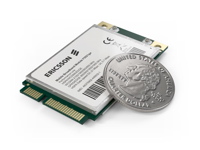The entertainment industry may have encountered another setback in its efforts to protect its content Monday as a hacker has reportedly cracked high definition content protection, more commonly referred to as HDCP. A supposed "master key" has begun to make its way around the Internet, although its validity has yet to be confirmed.
With the master key, the system no longer works, as hackers would now be able to create their own source and sink keys, both of which are needed to playback content on HDCP-protected devices. Thus a perfect connection could always be ensured between transmitting and receiving devices.
It would also open up HDCP-protected content to be copyable. While the system does have a method for revocation, with the master key the hacker would be able to create a new active key, and build devices that could decode and copy content at its full quality.
Revocation is a tricky proposition: if a manufacturer finds that a key has been compromised, he or she can blacklist it. There's a problem with this method though -- it very well could block users who aren't attempting to circumvent the copy protection as well -- a potentially disastrous situation.
HDCP has been in use by iTunes for nearly two years now, and it has caused some consternation for users. Certain movies will not play on external displays due to those monitors not supporting HDCP. Its implementation is cheap and easy, and thus has become a popular way to protect digital content.
How hackers got ahold of the master key is not known, although as early as 2001 researchers were warning that it could be broken through reverse engineering. The keys from about 50 or so devices would be needed to complete the hack, they said.
Will the entertainment industry take this sitting down? I4U News' Robert Evans doesn't think so. "A major advance like this won't be met with silence from the anti-piracy crew," Evans wrote Tuesday. "Get ready to see a real throw-down (or at least a flurry of PR fluff) in the coming days."
Copyright Betanews, Inc. 2010










